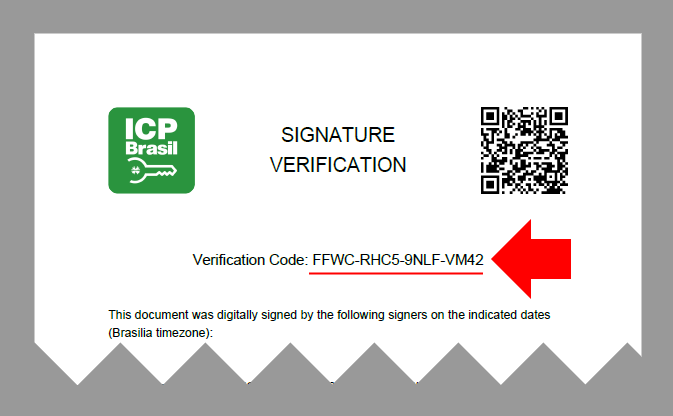Generating alphanumeric codes
When generating a printer-friendly version of a signed file, a "document verification code" needs to be included in the document so that a third party receiving the printed document can access your website and provide the code to get back the digitally signed version:

In the past, we provided the source code to generate this verification code as part of the samples, for instance:
public static class Util {
// ...
public static string GenerateVerificationCode() {
// String with exactly 32 letters and numbers to be used on the codes.
const string Alphabet = "ABCDEFGHJKLMNPQRSTUVWXYZ23456789";
// Allocate a byte array large enough to receive the necessary entropy
var bytes = new byte[(int)Math.Ceiling(VerificationCodeSize * 5 / 8.0)];
// ...
return sb.ToString();
}
// ...
}
However, since the verification code plays an important role in protecting the access to your documents, we now offer
the AlphaCode class to perform the code generation.
Updating your app to use AlphaCode
Warning
The verification code generation has recently undergone a careful audit and has received important improvements. We highly recommend that you update your application to use AlphaCode instead of the old provided code.
You probably brought the (now obsolete) methods GenerateVerificationCode, FormatVerificationCode and ParseVerificationCode
into your own code. To update your application:
- Update the nuget package Lacuna.Pki to version 2.5.2 or greater
Replace the implementation of these methods on your code with calls to methods of the AlphaCode class:
public static string GenerateVerificationCode() => AlphaCode.Generate(); public static string FormatVerificationCode(string code) => AlphaCode.Format(code); public static string ParseVerificationCode(string formattedCode) => AlphaCode.Parse(formattedCode);
Design principles
The class AlphaCode generates alphanumeric codes that are easy for humans to read, such that:
- Codes should be easy to read
- Codes should be easy to type back with low risk of mistaking similar characters such as
Oand0 - Codes should have a relatively high entropy for the size of the code (high number of possible codes relative to the size of the code, allowing the developer to choose a relatively small code size).
To improve readability, the codes contain only uppercase letters and do not include characters like O, 0, 1 and I, while
still maintaining a relatively high entropy per character. There are 32 possible characters, so every character adds 5 bits to the overall
entropy (25% better than using hexadecimal) which results in smaller codes for the same intended entropy.
For instance, to generate a code with 80 bits of entropy (2^80 possible codes):
- A hexadecimal code would need 20 characters, e.g.:
90A0-F20F-5883-8D55-AD31 - An AlphaCode code would only need 16 characters, e.g.:
FFWC-RHC5-9NLF-VM42